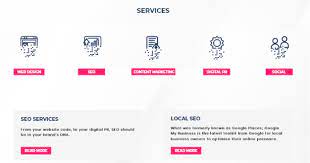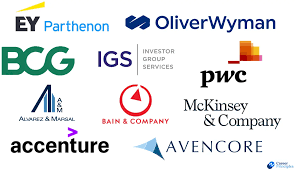Maximizing Online Success: Harnessing the Power of PR SEO Services
PR SEO Services: The Perfect Blend for Effective Online Communication
In today’s digital age, businesses are constantly striving to improve their online presence and reach their target audience effectively. Public relations (PR) and search engine optimization (SEO) are two powerful strategies that can significantly impact a company’s visibility, credibility, and brand reputation. When combined, PR and SEO create a dynamic partnership that can take your online communication to new heights.
PR, traditionally known for its ability to manage media relations and shape public perception, has evolved in the digital era. It now encompasses various online platforms such as social media, blogs, and influencer marketing. PR focuses on building relationships with key stakeholders, generating positive publicity, and enhancing brand reputation.
On the other hand, SEO is all about optimizing your website’s visibility on search engine result pages (SERPs). By utilizing strategic keywords, creating quality content, improving website structure, and acquiring backlinks from reputable sources, SEO helps businesses rank higher in search engine rankings. This increased visibility drives organic traffic to your website and boosts brand awareness.
When PR and SEO work together harmoniously, the results can be truly transformative. Here’s how:
- Enhanced Brand Visibility: Combining PR tactics such as press releases or media mentions with SEO techniques ensures that your brand is visible across multiple channels. Optimizing press releases with relevant keywords helps them rank higher in search results while attracting potential customers’ attention.
- Credibility Boost: PR activities like securing guest blogging opportunities on authoritative websites or earning positive reviews from influencers can significantly enhance your brand’s credibility. When coupled with effective SEO practices like optimizing meta tags or improving website speed for better user experience, this credibility translates into higher rankings on SERPs.
- Targeted Audience Engagement: PR allows you to craft compelling narratives tailored to specific audiences while leveraging various communication channels. By incorporating relevant keywords into these narratives alongside effective link-building strategies used in SEO campaigns, you can attract your target audience and drive them to your website.
- Reputation Management: PR SEO services play a crucial role in managing and protecting your brand’s reputation online. By monitoring conversations, responding to customer reviews, and addressing any negative feedback promptly, you can maintain a positive online image. SEO techniques like optimizing content with relevant keywords help push down negative search results, ensuring that your brand’s reputation remains intact.
- Measurable Results: Both PR and SEO are data-driven disciplines. By leveraging analytics tools, you can track the impact of your PR SEO efforts accurately. Monitoring website traffic, keyword rankings, social media engagement, and media coverage allows you to measure the success of your integrated strategy and make data-informed decisions for future campaigns.
In conclusion, combining PR and SEO services offers businesses a comprehensive approach to online communication. The synergy between these two strategies maximizes brand visibility, credibility, audience engagement, and reputation management. By partnering with a reputable PR agency that understands the intricacies of SEO or an SEO agency with a strong PR background, businesses can unlock the full potential of their online presence in today’s competitive landscape.
Investing in PR SEO services is not just about increasing website traffic or securing high rankings; it’s about building a strong brand presence that resonates with your target audience while positively impacting your bottom line. Embrace this powerful combination today and watch as your online communication reaches new heights of success.
8 Pros of PR SEO Services: Enhancing Visibility, Boosting Traffic, Cost-Effectiveness, Sustainable Results, Building Brand Awareness, Augmenting Credibility, Staying Ahead in the Competitive Landscape, Optimizing Content Creation
- Increased visibility
- Improved traffic
- Cost-effective
- Long-term results
- Brand awareness
- Increased credibility
- Stay ahead of the competition
- Optimized content creation
7 Cons of PR SEO Services: A Comprehensive Analysis
- Cost – Professional SEO services can be expensive and may not always provide the desired results.
- Time consuming – SEO is a long-term strategy and can take a significant amount of time to achieve desired results.
- Risky – Search engine algorithms are constantly changing, which means that any SEO efforts could become obsolete quickly or even penalized by search engines if done incorrectly.
- Lack of control – When outsourcing to an SEO agency, you have less control over the process and may not get the desired results in a timely manner or as expected.
- Difficulty measuring success – It can be difficult to accurately measure the success of an SEO campaign, making it hard to assess whether it has been effective or not.
- Unsustainable strategies– Some agencies use unsustainable tactics such as link buying which can result in penalties from search engines if discovered by them or your competitors .
- Misleading promises – Many agencies make big promises that they cannot deliver on due to lack of knowledge or experience in SEO best practices
Increased visibility
Increased Visibility: The Power of PR SEO Services
In today’s digital landscape, having a strong online presence is essential for businesses to thrive. One significant advantage of PR SEO services is the increased visibility they provide. By harnessing the power of search engine optimization (SEO), businesses can enhance their website’s visibility on search engines, making it easier for potential customers to find them.
SEO involves optimizing various elements of your website, such as content, meta tags, and site structure, to improve its ranking on search engine result pages (SERPs). When your website ranks higher in search results, it becomes more visible to users actively searching for products or services related to your industry.
By integrating PR tactics into your SEO strategy, you can further amplify your brand’s visibility. PR activities like press releases, media mentions, and influencer collaborations generate positive publicity and attract attention from both consumers and search engines. Optimizing press releases with relevant keywords helps them rank higher in search results, ensuring that your brand gets noticed by potential customers.
Increased visibility through PR SEO services offers several benefits for businesses:
- Expanded Reach: With higher visibility on search engines, your website becomes accessible to a wider audience. This expanded reach allows you to connect with potential customers who may have otherwise been unaware of your brand or offerings. By capturing the attention of these new audiences, you can drive more traffic to your website and increase the chances of converting them into loyal customers.
- Improved Brand Awareness: When your website consistently appears at the top of search results for relevant keywords, it establishes credibility and builds brand awareness. Users tend to trust websites that rank highly on SERPs as they perceive them as authoritative sources within their industry. This increased brand awareness not only attracts new customers but also reinforces the loyalty of existing ones.
- Targeted Traffic: PR SEO services enable you to attract highly targeted traffic to your website. By optimizing content with specific keywords related to your products or services, you can ensure that your website appears in front of users actively searching for those keywords. This targeted traffic increases the likelihood of conversions, as these users are already interested in what you have to offer.
- Competitive Edge: In today’s competitive market, businesses need every advantage they can get. By investing in PR SEO services, you gain an edge over competitors who may not have optimized their online presence effectively. Increased visibility on search engines positions your brand as a leader in your industry and helps you stand out from the crowd.
In conclusion, the increased visibility provided by PR SEO services is a game-changer for businesses seeking to thrive in the digital world. By optimizing your website and leveraging PR tactics, you can improve your rankings on search engine result pages and attract more potential customers. This expanded reach, improved brand awareness, targeted traffic, and competitive edge all contribute to the growth and success of your business.
Investing in PR SEO services is not just about increasing visibility; it’s about positioning your brand as an authority within your industry and connecting with the right audience at the right time. Embrace this powerful combination today and watch as your online visibility soars to new heights.
Improved traffic
Improved Traffic: The Power of PR SEO Services
In the digital realm, generating quality traffic to your website is crucial for business success. One of the significant benefits of PR SEO services is their ability to drive organic traffic, resulting in increased sales and leads. Let’s explore how this powerful combination can boost your website’s visibility and attract the right audience.
Search engine optimization (SEO) techniques focus on optimizing your website’s content, structure, and online presence to rank higher in search engine results pages (SERPs). By strategically incorporating relevant keywords, improving site speed and user experience, and acquiring backlinks from reputable sources, SEO helps search engines recognize your website as valuable and trustworthy.
When combined with public relations (PR) strategies, such as press releases or media mentions, SEO takes on a new dimension. Press releases optimized with targeted keywords not only reach journalists but also attract potential customers searching for related information. This dual impact increases the visibility of your brand across multiple channels.
As your website climbs higher in search rankings through effective SEO practices, it becomes more visible to users actively seeking products or services like yours. This increased visibility translates into improved organic traffic. Users are more likely to click on websites that appear at the top of search results, leading them directly to your site.
The beauty of PR SEO services lies in their ability to attract relevant traffic. By aligning PR efforts with SEO strategies, you can craft compelling narratives tailored to specific audiences while incorporating the right keywords. This combination ensures that you not only capture users’ attention but also engage those who are genuinely interested in what you offer.
With increased organic traffic comes a greater opportunity for conversions. Users who find your website through organic search results are often more likely to convert into paying customers or qualified leads. They have actively sought out information related to your industry or product and are therefore more likely to be interested in what you have to offer.
By investing in PR SEO services, you are investing in the long-term success of your business. The improved traffic generated through organic search results not only increases sales and leads but also builds brand credibility and awareness. Users trust websites that rank highly in search engines, making them more likely to engage with your content, share it with others, and ultimately become loyal customers.
In conclusion, the combination of PR and SEO offers a powerful solution for businesses seeking to improve their website traffic. By optimizing your website for search engines while leveraging PR strategies to enhance brand visibility, you can attract relevant, organic traffic that is more likely to convert into valuable leads and sales. Embrace the power of PR SEO services today and unlock a world of increased online visibility and business growth.
Cost-effective
Cost-effective: Unlocking the Value of PR SEO Services
In the world of digital marketing, every business aims to make the most out of their budget while achieving significant results. When it comes to cost-effectiveness, PR SEO services emerge as a standout strategy. Compared to other digital marketing approaches, SEO offers an exceptional return on investment (ROI) that can drive long-term success for your business.
One of the key advantages of PR SEO services is their cost-effectiveness. Traditional advertising methods often come with hefty price tags, making it challenging for small and medium-sized businesses to compete on a level playing field. However, SEO levels the playing field by providing an affordable yet highly impactful solution.
SEO focuses on optimizing your website’s visibility in organic search results. By strategically incorporating relevant keywords, creating high-quality content, and improving website structure, you can attract targeted traffic without having to pay for each click or impression. Unlike paid advertising methods such as pay-per-click (PPC) campaigns, where costs can quickly add up, SEO allows you to generate ongoing organic traffic at a fraction of the cost.
Moreover, investing in PR SEO services ensures that your marketing efforts are more targeted and yield higher-quality leads. By optimizing your website for specific keywords related to your industry or niche, you attract users who are actively searching for products or services like yours. This means that the traffic driven by SEO is more likely to convert into customers or clients.
Additionally, once your website starts ranking higher in search engine results pages (SERPs), the benefits are long-lasting. Unlike paid advertising campaigns that stop generating traffic once you pause them or run out of budget, the effects of SEO continue even when you’re not actively working on it. This sustainable approach allows you to generate ongoing organic traffic without constantly investing in ads.
Furthermore, with proper tracking and analytics tools in place, you can measure the impact and effectiveness of your PR SEO efforts accurately. This data-driven approach enables you to make informed decisions and optimize your strategy based on real-time insights. By continuously monitoring and refining your SEO tactics, you can further enhance your ROI and achieve even better results over time.
In conclusion, PR SEO services offer a cost-effective solution for businesses looking to maximize their marketing budget. By investing in SEO, you can generate ongoing organic traffic, attract high-quality leads, and achieve a remarkable ROI. The long-lasting effects of SEO coupled with its affordability make it an invaluable tool for businesses of all sizes.
So, if you’re seeking a cost-effective digital marketing strategy that delivers exceptional results, consider harnessing the power of PR SEO services. Embrace this approach and position your business for sustained growth and success in the competitive online landscape.
Long-term results
Long-term Results: The Lasting Benefits of PR SEO Services
In the world of online marketing, businesses are constantly seeking strategies that offer sustainable and long-term results. One significant advantage of PR SEO services is their ability to provide lasting benefits that continue to pay off over time. Unlike paid advertising campaigns that deliver immediate but short-lived outcomes, SEO offers a solid foundation for long-term success.
When it comes to search engine optimization (SEO), the goal is to improve your website’s visibility and organic rankings on search engine result pages (SERPs). By implementing effective SEO techniques such as keyword optimization, quality content creation, website optimization, and link-building strategies, you can establish a strong online presence that stands the test of time.
Here’s why investing in PR SEO services yields long-lasting advantages:
- Sustainable Organic Traffic: SEO focuses on attracting organic traffic to your website. By optimizing your site for relevant keywords and providing valuable content that aligns with user intent, you can attract visitors who are genuinely interested in your products or services. This sustained flow of organic traffic not only increases your chances of conversions but also builds brand awareness and recognition among your target audience.
- Authority and Credibility: A well-executed PR SEO strategy positions your brand as an authority in your industry. By consistently producing high-quality content, securing backlinks from reputable sources, and earning positive reviews from influencers or media outlets, you establish credibility and trust with both search engines and users. This reputation takes time to build but has a lasting impact on how your brand is perceived by potential customers.
- Cost-Effective Approach: While paid advertising campaigns can generate immediate results, they require ongoing investment to maintain visibility. In contrast, once you have optimized your website for search engines through effective PR SEO practices, the benefits continue without additional costs. With regular monitoring and adjustments to stay up-to-date with algorithm changes or market trends, you can sustain high rankings without constantly increasing your advertising budget.
- Long-Term ROI: Investing in PR SEO services is an investment in the future success of your business. While it may take time to see significant results, the long-term return on investment (ROI) is substantial. As your website climbs the search engine rankings and attracts organic traffic, you generate leads and conversions that continue to drive revenue over an extended period. This sustainable growth can have a profound impact on your business’s overall profitability.
- Adaptability to Market Changes: The digital landscape is ever-evolving, with search engine algorithms and user preferences constantly changing. A well-implemented PR SEO strategy ensures that your website remains adaptable to these changes. By staying up-to-date with industry trends, regularly optimizing content and website structure, and monitoring analytics data, you can adapt your strategy accordingly and maintain a competitive edge in the long run.
In conclusion, PR SEO services offer businesses a sustainable approach to online marketing by providing long-term benefits that continue to yield results over time. By focusing on building organic traffic, establishing authority and credibility, adopting a cost-effective approach, generating long-term ROI, and adapting to market changes, businesses can secure their online presence for years to come.
Investing in PR SEO services is not just about immediate gains; it’s about building a solid foundation for lasting success in the ever-changing digital landscape. Embrace this pro of PR SEO services today and position your business for sustained growth and profitability in the future.
Brand awareness
Brand Awareness: Boosting your Online Presence with PR SEO Services
In today’s digital landscape, brand awareness plays a crucial role in the success of any business. One powerful advantage of PR SEO services is their ability to enhance brand awareness by increasing your website’s online presence and improving its ranking in search engine results pages (SERPs).
SEO, with its strategic use of keywords, quality content creation, and optimization techniques, helps your website rank higher in search engine results. When potential customers search for relevant keywords related to your business, appearing on the first page of search results significantly increases the chances of them discovering and engaging with your brand.
By implementing effective SEO strategies alongside PR efforts, you can amplify your brand’s visibility across various online platforms. PR activities such as press releases, media mentions, guest blogging opportunities, or influencer collaborations help generate positive publicity and attract attention to your brand. Optimizing these PR materials with relevant keywords ensures that they rank higher in search results when potential customers are searching for information related to your industry.
The combination of PR and SEO creates a powerful synergy that enhances brand awareness. When customers consistently encounter your brand’s messaging through media coverage or influential online sources while also seeing your website rank prominently in search results, it reinforces trust and credibility. This increased visibility not only helps potential customers recognize and remember your brand but also increases the likelihood of them choosing you over competitors.
Furthermore, improved brand awareness through PR SEO services can lead to increased organic traffic to your website. As more people become aware of your brand and actively seek out information about it, they are more likely to visit your website directly or click on links associated with it in search results. This organic traffic is valuable as it indicates genuine interest from individuals who are actively looking for products or services like yours.
Building strong brand awareness is a long-term investment that pays off in many ways. It establishes a solid foundation for customer loyalty and advocacy while attracting new customers who resonate with your brand values. By leveraging PR SEO services, you can ensure that your brand is highly visible to your target audience, leaving a lasting impression and positioning yourself as an authority in your industry.
In conclusion, the combination of PR and SEO services offers a powerful advantage in boosting brand awareness. By improving your website’s visibility online and optimizing it for search engine rankings, you increase the likelihood of potential customers discovering and engaging with your brand. Embrace the benefits of PR SEO services today and watch as your brand awareness soars to new heights, driving growth and success for your business.
Increased credibility
Increased credibility: Achieving high rankings in SERPs builds trust among potential customers and increases the credibility of your business or brand online.
In today’s digital era, consumers rely heavily on search engines to find information, products, and services. When your website appears at the top of search results for relevant keywords, it sends a powerful message to potential customers – that your business is credible and trustworthy.
By combining PR and SEO strategies, you can enhance your online credibility even further. PR activities such as securing media coverage or earning positive reviews from influencers contribute to building a positive perception of your brand. When these PR efforts are aligned with effective SEO practices like optimizing meta tags, improving website speed, and creating quality content, you create a strong foundation for trust.
When potential customers see your brand consistently appearing in search results and associated with reputable sources, they are more likely to view you as an authority in your industry. This increased credibility not only attracts more organic traffic to your website but also encourages visitors to engage with your content, products, or services.
Moreover, high rankings in SERPs also act as a form of social proof. When people see that others have found value in what you offer and have chosen you over competitors, it reinforces their trust in your business. This can be particularly impactful when coupled with positive customer reviews or testimonials prominently displayed on your website.
Credibility is a key factor influencing consumer purchasing decisions. Potential customers are more likely to choose businesses they perceive as reliable and trustworthy. By leveraging PR SEO services to achieve high rankings in search results, you can establish yourself as a credible player in the market.
It’s important to note that credibility is not built overnight; it requires consistent effort and strategic planning. By regularly producing valuable content that aligns with the interests of your target audience and promoting it through PR channels while optimizing it for search engines, you can gradually build trust over time.
Investing in PR SEO services is an investment in your brand’s credibility. By combining the power of PR and SEO, you can position your business as a credible authority in your industry, attracting more potential customers and building long-term relationships based on trust. In today’s competitive online landscape, credibility is a valuable asset that can set you apart from the competition and drive sustainable growth for your business.
Stay ahead of the competition
Stay Ahead of the Competition with PR SEO Services
In today’s fiercely competitive business landscape, staying one step ahead of your competitors is crucial. One way to gain an edge is by investing in PR SEO services. By doing so, you can ensure that your online presence outshines your competitors who may not be prioritizing their own optimization efforts just yet.
Search engine optimization (SEO) has become an integral part of digital marketing strategies. It involves optimizing your website and content to rank higher on search engine result pages (SERPs), thereby increasing visibility and attracting organic traffic. When combined with PR tactics, such as media relations and influencer partnerships, the benefits are even more significant.
By investing in SEO services while your competitors may lag behind, you establish a strong online presence early on. While they struggle to catch up, you can enjoy higher rankings, increased website traffic, and greater brand visibility. This advantage allows you to capture the attention of potential customers before your competitors do.
Moreover, being proactive with PR SEO services positions you as an industry leader. When consumers search for relevant keywords or topics related to your business, they are more likely to encounter your optimized content and perceive you as a trusted source of information. This credibility gives you a competitive edge by building trust and establishing yourself as an authority in your field.
Additionally, staying ahead of the competition through PR SEO services enables you to adapt quickly to changes in search engine algorithms or industry trends. As search engines continually refine their algorithms, it is essential to stay updated and make necessary adjustments to maintain high rankings. By investing early in optimization efforts, you can establish a solid foundation that allows for easier adaptation when changes occur.
Furthermore, being proactive with PR SEO services helps create brand recognition among your target audience. Consistently appearing at the top of search results enhances brand recall and familiarity. When customers repeatedly encounter your optimized content across various channels, they are more likely to remember your brand and choose you over competitors when making purchasing decisions.
In conclusion, investing in PR SEO services gives you a significant advantage over competitors who may not be prioritizing their own optimization efforts yet. By establishing a strong online presence early on, you can enjoy higher rankings, increased visibility, and greater credibility. Additionally, staying ahead allows you to adapt quickly to changes in algorithms and industry trends, while also building brand recognition among your target audience.
Don’t wait for your competitors to catch up; take the lead with PR SEO services and secure a competitive edge that will propel your business forward.
Optimized content creation
Optimized Content Creation: The Winning Edge of PR SEO Services
In the digital realm, content is king. However, creating content that not only meets users’ needs but also ranks well on search engine result pages (SERPs) can be a challenging task. This is where the power of PR SEO services comes into play. By combining public relations expertise with search engine optimization strategies, businesses can create optimized content that not only resonates with their target audience but also helps improve their online visibility.
One of the key benefits of PR SEO services is the ability to craft tailored and optimized content that meets users’ needs. Through thorough research and analysis, PR professionals identify the topics and keywords that are most relevant to their client’s target audience. By understanding what users are searching for, they can create content that addresses their pain points, provides valuable information, and offers solutions.
However, creating great content alone is not enough in today’s competitive digital landscape. It needs to be optimized for search engines to ensure maximum visibility. This is where SEO techniques come into play. By strategically incorporating relevant keywords into the content, optimizing meta tags, headers, and URLs, and ensuring proper internal linking structure, PR SEO services help boost the content’s ranking potential.
Optimized content creation serves two important purposes. Firstly, it enhances user experience by providing valuable information that meets their specific needs. When users find your content helpful and engaging, they are more likely to spend time on your website, explore other pages, and potentially convert into customers or clients.
Secondly, optimized content improves rankings on SERPs. When search engines recognize that your content is relevant to users’ queries and provides value in terms of information or solutions, they reward it with higher rankings. This increased visibility drives organic traffic to your website and increases brand exposure.
Moreover, optimized content creation also complements other PR efforts such as media relations or influencer collaborations. When you have compelling and well-optimized content, it becomes easier to secure media coverage or gain attention from influential individuals in your industry. This can result in additional exposure, backlinks, and social media mentions, further boosting your website’s authority and visibility.
In conclusion, the ability to create optimized content is a significant advantage of PR SEO services. By understanding users’ needs and incorporating relevant keywords strategically, businesses can create content that not only resonates with their target audience but also ranks well on search engines. This combination of user-centricity and search engine optimization helps businesses enhance their online visibility, attract organic traffic, and ultimately achieve their marketing goals.
Investing in PR SEO services allows businesses to unlock the potential of their content by ensuring it reaches the right audience at the right time. So, embrace optimized content creation as a vital component of your digital strategy and watch as your online presence flourishes.
Cost – Professional SEO services can be expensive and may not always provide the desired results.
Cost – A Consideration in PR SEO Services
When it comes to PR SEO services, one con that businesses need to consider is the cost. Professional SEO services can often come with a hefty price tag, and there is no guarantee that they will always provide the desired results.
SEO requires a significant investment of time, expertise, and resources. Hiring an experienced SEO agency or consultant who understands the intricacies of both PR and SEO can be costly. Additionally, ongoing monitoring, analysis, and adjustments are necessary to keep up with ever-changing search engine algorithms.
The cost of PR SEO services can vary depending on factors such as the scope of work, the competitiveness of the industry, and the goals of the campaign. It’s essential for businesses to carefully evaluate their budget and determine if they can allocate sufficient funds to invest in professional SEO services.
However, it’s important to note that while costs may be high, they often reflect the value provided by experienced professionals who can deliver effective strategies tailored to your business objectives. The expertise and knowledge offered by these professionals can save businesses time and effort in navigating the complex world of SEO.
Another aspect to consider is that results may not always align with expectations. SEO is a long-term strategy that requires patience and ongoing efforts. It takes time for search engines to recognize and reward optimization efforts, which means desired results may not be immediate.
It’s crucial for businesses to set realistic expectations when investing in PR SEO services. While professional assistance can significantly improve visibility, credibility, and audience engagement over time, it’s important to understand that there are no guarantees of overnight success or instant top rankings.
To mitigate these potential drawbacks related to cost and results, businesses should thoroughly research potential agencies or consultants before making a decision. Look for reputable providers with a track record of delivering successful campaigns within your budget range. Seek out references or case studies that demonstrate their ability to achieve measurable results over time.
Ultimately, while cost considerations and uncertain outcomes can be drawbacks of PR SEO services, it’s essential to weigh them against the potential benefits. A well-executed PR SEO strategy can significantly enhance a business’s online presence, increase brand visibility, and drive organic traffic. By carefully assessing your budget, setting realistic expectations, and partnering with trusted professionals, you can make informed decisions about your PR SEO investment.
Time consuming – SEO is a long-term strategy and can take a significant amount of time to achieve desired results.
Time Consuming: The Challenge of Long-Term SEO Strategies
In the world of digital marketing, search engine optimization (SEO) has become an essential tool for businesses looking to improve their online visibility and attract organic traffic. However, one significant drawback of incorporating SEO into your PR strategy is the time it takes to achieve desired results.
SEO is not a quick fix; it requires a long-term commitment and consistent effort. Optimizing your website, creating quality content, building backlinks, and improving user experience are all crucial aspects of SEO that take time to implement effectively. It’s important to set realistic expectations and understand that achieving significant results may not happen overnight.
One reason for the time-consuming nature of SEO is the ever-changing algorithms used by search engines like Google. These algorithms are designed to deliver the most relevant and high-quality content to users. As a result, they constantly evolve, requiring businesses to adapt their SEO strategies accordingly. Staying up-to-date with these changes and adjusting your approach can be time-consuming but necessary for success.
Another factor contributing to the time-consuming nature of SEO is the competitive landscape. Businesses across industries are vying for top rankings on search engine result pages (SERPs). To outrank competitors and secure higher positions, you need to invest time in thorough keyword research, content creation, and link-building activities.
Furthermore, building a reputable online presence through PR efforts also takes time. Establishing relationships with journalists, securing media coverage, or earning backlinks from authoritative sources requires patience and persistence. These PR activities go hand-in-hand with SEO strategies but can add an additional layer of complexity and time commitment.
While it’s true that SEO can be time-consuming, it’s important not to overlook its long-term benefits. Once you start seeing improvements in your website’s rankings and organic traffic, the rewards can be significant. Higher visibility on SERPs leads to increased brand exposure, credibility, and ultimately more qualified leads and conversions.
To mitigate the time-consuming nature of SEO, it’s advisable to seek professional assistance from experienced digital marketing agencies or SEO specialists. They have the expertise and resources to implement effective strategies efficiently, saving you time and allowing you to focus on other aspects of your business.
In conclusion, it’s crucial to acknowledge that SEO is a long-term strategy that requires patience, dedication, and ongoing effort. While it may be time-consuming, the rewards of improved online visibility and increased brand recognition make it a worthwhile investment. By understanding the challenges and seeking professional assistance, you can navigate the complexities of SEO while reaping its long-term benefits for your business.
Risky – Search engine algorithms are constantly changing, which means that any SEO efforts could become obsolete quickly or even penalized by search engines if done incorrectly.
The Risks of PR SEO Services: Navigating the Ever-Changing Search Landscape
In the world of digital marketing, PR SEO services offer immense potential for businesses to enhance their online visibility and reach their target audience effectively. However, it is essential to acknowledge that there are risks involved in this dynamic strategy. One significant concern is the ever-changing nature of search engine algorithms, which can render SEO efforts obsolete or even lead to penalties if not implemented correctly.
Search engines like Google continuously update their algorithms to provide users with the most relevant and high-quality search results. These changes can impact how websites are ranked in search engine result pages (SERPs) and affect the visibility of businesses online. As a result, SEO practices that were effective yesterday may not necessarily yield the same results tomorrow.
The risk lies in relying solely on outdated or incorrect SEO techniques that could potentially harm your website’s rankings. Search engines penalize websites that engage in black-hat SEO practices such as keyword stuffing, buying backlinks, or creating low-quality content solely for the purpose of manipulating search rankings. These penalties can lead to a significant drop in organic traffic and negatively impact your brand’s reputation.
To mitigate these risks, it is crucial to stay informed about the latest changes in search engine algorithms and adapt your PR SEO strategies accordingly. This involves keeping up with industry news, following reputable SEO resources, and partnering with experienced professionals who have a deep understanding of current best practices.
Implementing white-hat SEO techniques is key to maintaining a sustainable online presence. By focusing on creating valuable content for users and optimizing your website structure for better user experience, you can build a solid foundation that aligns with search engine guidelines.
Additionally, diversifying your marketing efforts beyond just relying on organic search traffic can help mitigate risks associated with algorithm changes. Incorporating other digital marketing channels such as social media marketing, email marketing, or paid advertising can provide alternative avenues for driving traffic and reaching your target audience.
Ultimately, the key to navigating the risks of PR SEO services lies in staying proactive and adaptable. By remaining vigilant and continuously monitoring the performance of your SEO efforts, you can identify any potential issues and make necessary adjustments to align with search engine guidelines.
While there are risks involved in PR SEO services due to the ever-changing search landscape, it is important to remember that with proper knowledge, strategic planning, and ethical practices, businesses can still harness the power of SEO to enhance their online visibility and connect with their target audience effectively.
Lack of control – When outsourcing to an SEO agency, you have less control over the process and may not get the desired results in a timely manner or as expected.
The Con of PR SEO Services: Lack of Control
In the realm of PR SEO services, where businesses aim to enhance their online presence and visibility, one potential drawback is the lack of control that comes with outsourcing to an SEO agency. While partnering with experts in the field can bring valuable expertise and resources, relinquishing control over the process may lead to undesired outcomes or delays in achieving desired results.
When businesses choose to outsource their SEO efforts, they entrust the execution of their strategies and tactics to an external agency. While this can be beneficial in terms of accessing specialized knowledge and industry insights, it also means relinquishing direct control over the implementation process.
One aspect where lack of control becomes apparent is in the timeline for achieving desired results. Businesses may have specific targets or deadlines they wish to meet, but when relying on an external agency, there can be unforeseen delays or misalignments in expectations. This can be frustrating for companies seeking immediate impact or those with time-sensitive campaigns.
Additionally, without direct oversight, there is a risk that the outcomes may not align with expectations. Businesses have unique goals and visions for their brand’s online presence, and outsourcing SEO services means placing trust in another entity’s ability to deliver those desired outcomes. However, due to differences in interpretation or miscommunication, there is a possibility that the agency’s execution may not fully match the business’s expectations.
Moreover, as businesses hand over control to an SEO agency, they may face challenges in promptly addressing issues or making adjustments during the process. Communication gaps or delays can hinder effective collaboration between both parties. This lack of real-time control and decision-making authority can be a source of frustration for businesses that prefer hands-on involvement throughout their marketing efforts.
To mitigate these concerns and ensure a successful partnership with an SEO agency, it is important for businesses to establish clear communication channels from the outset. Establishing regular check-ins, setting realistic expectations regarding timelines and outcomes, and maintaining open lines of communication can help bridge the gap between businesses and their chosen agency.
While the lack of control is a valid concern, it is essential to weigh it against the potential benefits that PR SEO services can bring. By selecting a reputable agency with a track record of delivering results, businesses can leverage their expertise while minimizing the risks associated with outsourcing. Ultimately, striking a balance between relinquishing control and maintaining active involvement in the process can lead to a successful collaboration that achieves desired results in a timely manner.
Difficulty measuring success – It can be difficult to accurately measure the success of an SEO campaign, making it hard to assess whether it has been effective or not.
Difficulty Measuring Success: A Challenge in PR SEO Services
In the world of digital marketing, measuring success is crucial to determine the effectiveness of any campaign. While PR SEO services offer numerous benefits, there is one con that businesses need to be aware of: the difficulty in accurately measuring the success of an SEO campaign.
Search engine optimization (SEO) involves a variety of strategies aimed at improving a website’s visibility and driving organic traffic. However, unlike other marketing tactics that may provide immediate and tangible results, assessing the impact of an SEO campaign can be challenging.
Here are some factors contributing to the difficulty in measuring success:
Ever-changing Algorithms: Search engines like Google regularly update their algorithms to provide users with the most relevant and high-quality search results. These algorithm changes can significantly impact a website’s rankings, making it difficult to attribute changes in traffic or rankings solely to an SEO campaign.
Multiple Variables at Play: SEO campaigns involve various elements such as keyword optimization, content creation, link building, and technical improvements. Determining which specific aspect contributed to a particular outcome can be complex when multiple variables are at play simultaneously.
Timeframe for Results: SEO is a long-term strategy that requires consistent effort and patience. It can take months before significant improvements are seen in search rankings or organic traffic. This prolonged timeframe makes it challenging to evaluate short-term success accurately.
Attribution Challenges: Measuring the impact of an SEO campaign on conversions or sales can be challenging due to attribution issues. Customers may interact with multiple touchpoints before making a purchase decision, making it difficult to attribute the final conversion solely to SEO efforts.
Despite these challenges, there are ways businesses can overcome them and gain insights into their SEO campaigns’ effectiveness:
Define Clear Goals: Establish specific goals for your SEO campaign from the outset. Whether it’s increasing organic traffic, improving search rankings for specific keywords, or enhancing brand visibility, having clear objectives will make it easier to measure success.
Track Relevant Metrics: While it may be challenging to directly attribute results to an SEO campaign, tracking relevant metrics can provide valuable insights. Monitor changes in organic traffic, keyword rankings, bounce rates, click-through rates, and engagement metrics to assess the overall impact of your efforts.
Use Analytics Tools: Leverage analytics tools like Google Analytics or SEO-specific platforms to gain deeper insights into your website’s performance. These tools can help track user behavior, referral sources, and conversions, providing a clearer picture of the campaign’s effectiveness.
Compare Data Over Time: Instead of focusing solely on short-term results, compare data over an extended period. Look for trends and patterns that indicate progress towards your goals. This long-term perspective will provide a more accurate assessment of the campaign’s success.
While measuring the success of an SEO campaign can be challenging due to various factors, it is not impossible. By setting clear goals, tracking relevant metrics, utilizing analytics tools, and analyzing data over time, businesses can gain valuable insights into their PR SEO services’ effectiveness.
Remember that SEO is a continuous process that requires ongoing optimization and adaptation. Regularly reviewing and adjusting your strategies based on measurable data will help ensure long-term success in improving your online visibility and driving organic traffic.
Unsustainable strategies– Some agencies use unsustainable tactics such as link buying which can result in penalties from search engines if discovered by them or your competitors .
Unsustainable Strategies in PR SEO Services: A Risk to Consider
In the world of PR SEO services, it is crucial to be aware of potential drawbacks that can arise from certain practices. One significant con to watch out for is the use of unsustainable tactics, such as link buying. While these strategies may seem tempting for quick results, they can have severe consequences in the long run.
Link buying involves purchasing links from other websites to artificially boost your website’s authority and search engine rankings. This practice goes against search engine guidelines and can lead to penalties if discovered by search engines or even your competitors.
Search engines are continuously evolving their algorithms to ensure that websites with valuable content and organic link profiles rank higher. When they detect unnatural linking patterns, they may penalize websites by lowering their rankings or even removing them from search results altogether.
The risks associated with unsustainable strategies like link buying extend beyond search engine penalties. They can also damage your brand’s reputation and credibility. Consumers today value authenticity and transparency more than ever before. If customers discover that you have engaged in unethical practices to manipulate search rankings, it can erode trust and negatively impact your brand image.
Furthermore, relying on unsustainable tactics creates a constant need for artificial link acquisition to maintain rankings. This approach is not sustainable in the long term and can lead to a never-ending cycle of trying to manipulate search engine algorithms rather than focusing on creating valuable content and building genuine relationships with your target audience.
To mitigate this risk, it is essential to work with reputable PR SEO agencies that prioritize ethical practices and sustainable strategies. A trustworthy agency will focus on creating high-quality content that naturally attracts organic backlinks while adhering to search engine guidelines.
A comprehensive PR SEO strategy should prioritize building genuine relationships with relevant influencers, earning media coverage through compelling stories, and fostering engagement through valuable content creation. These sustainable tactics not only contribute positively to your website’s visibility but also enhance your brand’s reputation over time.
In conclusion, while PR SEO services can bring immense benefits to your online presence, it is crucial to be cautious of unsustainable strategies such as link buying. These practices can lead to penalties from search engines and damage your brand’s reputation. By choosing a reputable agency that focuses on ethical and sustainable tactics, you can ensure long-term success in your PR SEO efforts while maintaining trust and credibility with your audience.
Misleading promises – Many agencies make big promises that they cannot deliver on due to lack of knowledge or experience in SEO best practices
Misleading Promises: A Pitfall of PR SEO Services
In the realm of PR SEO services, it is essential to be cautious of agencies that make grand promises without possessing the necessary knowledge or experience in SEO best practices. While the integration of PR and SEO can yield remarkable results, falling prey to misleading promises can lead to disappointment and wasted resources.
One common pitfall is when agencies overstate their capabilities or guarantee immediate and extraordinary results. It is crucial to remember that effective SEO strategies require time, expertise, and a deep understanding of search engine algorithms. Genuine progress in organic rankings and increased website visibility is a gradual process that cannot be achieved overnight.
Agencies lacking in-depth knowledge or experience in SEO best practices may resort to outdated techniques or black-hat tactics that violate search engine guidelines. These unethical practices can result in severe penalties, including being deindexed from search engines altogether. It is vital for businesses to partner with reputable agencies that adhere to ethical SEO practices and stay up-to-date with industry trends.
Another aspect to consider is the alignment between PR and SEO objectives. While both disciplines contribute to brand visibility, reputation management, and audience engagement, they have distinct goals and strategies. Agencies promising seamless integration without a thorough understanding of both disciplines may struggle to deliver on their commitments.
To avoid falling victim to misleading promises, businesses should conduct thorough research before engaging an agency for PR SEO services. Look for agencies with a proven track record of success, positive client testimonials, and transparent reporting processes. A reputable agency will take the time to understand your business goals, conduct a comprehensive website audit, and provide realistic expectations based on your specific industry and competition.
Furthermore, it is crucial for businesses to have a clear understanding of what they want to achieve through PR SEO services. By setting realistic goals aligned with your budget and timeline, you can better evaluate agency proposals and identify any exaggerated claims or unrealistic guarantees.
Ultimately, transparency and open communication are key when partnering with a PR SEO agency. A trustworthy agency will be honest about the challenges and limitations of SEO, provide regular updates on progress, and adjust strategies as needed to achieve sustainable results.
In conclusion, while PR SEO services offer immense potential for enhancing brand visibility and online presence, businesses must be cautious of agencies that make misleading promises. Lack of knowledge or experience in SEO best practices can lead to disappointment and potential harm to your brand’s reputation. By conducting thorough research, setting realistic goals, and partnering with reputable agencies, businesses can navigate through this con and leverage the true benefits of PR SEO integration.












